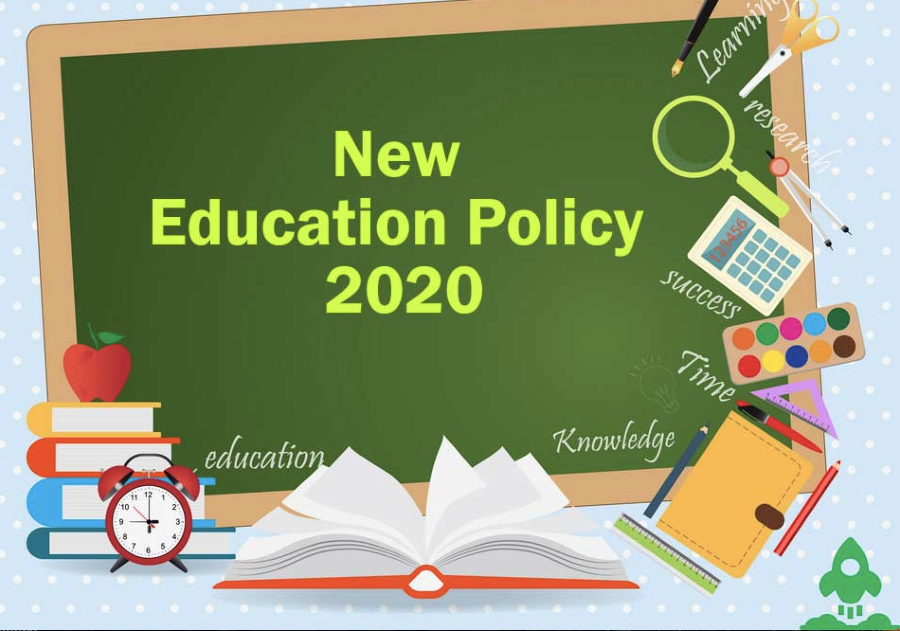Shaping the Future of Learning
Education plays a pivotal role in shaping society, and as times change, so must our educational systems. In 2020, a significant milestone was achieved with the introduction of the New Education Policy (NEP) in many countries. This forward-thinking policy aims to revolutionize the way we teach and learn, emphasizing holistic development, flexibility, and innovation. In this blog, we will delve into the key aspects of the New Education Policy 2020 and explore its potential to reshape the future of learning.
Holistic Development
One of the central pillars of the New Education Policy is its focus on holistic development. Recognizing that education extends beyond academics, the NEP emphasizes the need to nurture the physical, emotional, and social well-being of students. This policy encourages the integration of sports, arts, and other co-curricular activities into the academic curriculum. By doing so, it fosters creativity, critical thinking, and overall personality development. The NEP acknowledges the significance of a well-rounded education that equips students with essential life skills, ensuring they are prepared to thrive in an ever-changing world.
Flexibility and Multidisciplinary Learning
The New Education Policy 2020 promotes a shift towards a more flexible and multidisciplinary approach to learning. It advocates for a curriculum that allows students to choose subjects across various disciplines, empowering them to explore their interests and passions. The policy emphasizes the importance of cross-disciplinary knowledge, recognizing that real-world challenges are often multifaceted and require a multidimensional understanding. By encouraging students to pursue a diverse range of subjects, the NEP fosters creativity, innovation, and problem-solving abilities, ultimately preparing them to tackle complex real-world scenarios.
Technology Integration
In today’s digital age, technology has become an integral part of our lives. The New Education Policy 2020 acknowledges this reality and advocates for the effective integration of technology in education. The policy emphasizes the need for digital infrastructure, connectivity, and digital literacy among students and teachers. By harnessing the power of technology, the NEP aims to enhance the quality of education, improve access to resources, and facilitate personalized learning experiences. With the inclusion of technology in classrooms, students can engage with interactive content, collaborate globally, and develop essential digital skills, better preparing them for the challenges of the modern world.
Teacher Empowerment and Professional Development
The success of any educational policy hinges on the quality and competence of its teachers. The New Education Policy 2020 recognizes this and prioritizes teacher empowerment and professional development. The NEP aims to provide teachers with opportunities for continuous learning, training, and upskilling. By investing in their professional growth, the policy ensures that educators are equipped with the knowledge and skills necessary to deliver high-quality education. Moreover, the NEP emphasizes the importance of cultivating a conducive and supportive environment for teachers, encouraging them to adopt innovative teaching methodologies and fostering a passion for lifelong learning.
Promoting Digital Literacy
Recognizing the increasing role of technology in education, the NEP 2020 places significant emphasis on promoting digital literacy. It envisions the integration of technology at all levels of education, from providing access to digital resources and platforms to training teachers in leveraging digital tools effectively. By equipping learners with digital skills and competencies, the policy aims to bridge the digital divide and empower them to participate actively in the digital age.
Assessment Reforms and Redefining Success
In an endeavor to move away from rote memorization and exam-centric education, the NEP 2020 advocates for a shift towards competency-based assessments such as continuous assessment, formative assessment, skill evaluation, project-based evaluation, experiential assessment, portfolio assessment, multidisciplinary assignment, adaptability and pace, comprehensive skill evaluation, Teacher’s role, feedback centric, holistic development, beyond rate learning. It encourages a comprehensive evaluation of learners, considering their critical thinking, problem-solving abilities, and practical skills. By redefining success beyond examination scores, the policy aims to foster a culture of holistic development, where students are encouraged to explore their passions and excel in areas they are genuinely interested in.
Conclusion
The New Education Policy 2020 represents a significant paradigm shift in the way we perceive education. By prioritizing holistic development, flexibility, technology integration, and teacher empowerment, the policy paves the way for a future-focused education system. It strives to create an environment that nurtures well-rounded individuals, encourages interdisciplinary thinking, prepares students for the digital age, and supports the growth of dedicated educators. As we embrace the New Education Policy, we embark on a journey towards a more inclusive, progressive, and transformative education system that equips students with the skills and knowledge necessary to thrive in an ever-evolving
Source

